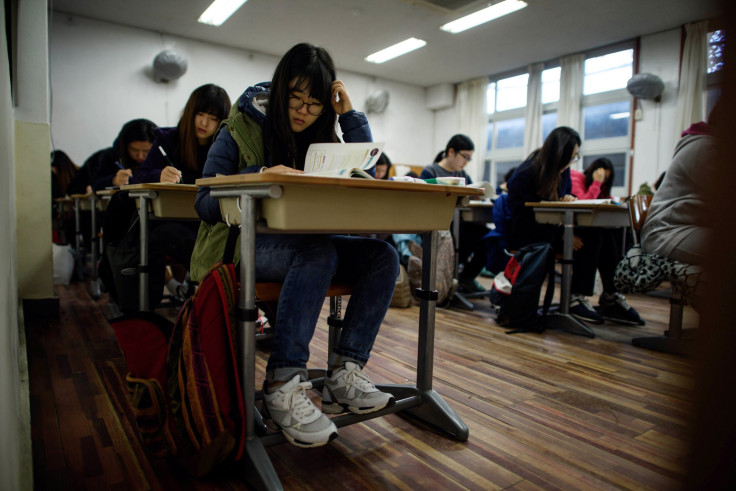Asia Exam Cheating: For Wealthy Students Seeking Entrance To US Colleges, Anything Goes

The growing fixation among parents in Asia to send their children to prestigious U.S. colleges has led to a massive expansion of the test-preparation business on the continent. But, fierce competition has also seen a widespread proliferation of cheating scandals that threatens to undermine the credibility of many Asian candidates.
For four consecutive months, the results of SAT exams administered in Asia have been withheld by the College Board, which owns and administers the tests, over concerns that students cheated. This is not a new phenomenon in Asia. In 2007 and 2013, exam scores of hundreds of candidates in South Korea were cancelled after it was discovered that students had gained prior access to the exam questions, the Washington Post reported.
Part of the problem lies with the authorities administering the tests. SAT exams are “recycled” in Asia, meaning exams are administered on the continent months after the same tests have already been given in the U.S., allowing students prior access to the questions, which are often shared on Internet forums, or obtained by unscrupulous test-preparation companies.
Test preparation is an enormous business in Asia, where wealthy families seek the prestige of having their children join what they view as the international academic elite in the U.S. college system. Last year, 150,000 students from China and South Korea -- 40 percent of all international undergraduates in America -- went to U.S. colleges, and the number of Chinese students in U.S. colleges grew 18 percent, according to Reuters.
Students from wealthy families seeking to have their offspring educated abroad, as well as those from poor backgrounds seeking a leg-up by gaining entrance to prestigious American institutions will sometimes study for as many as 16 hours a day, and pay thousands of dollars that they can sometimes ill-afford to attend test-preparation, or “cram” schools, in a bid to improve their chances.
The pressure on students can be immense. A 2009 New York Times profile of cram schools in China found that some students studied in a hospital, hooked up to oxygen containers, in the hopes of improving their concentration, while female students took contraceptives to stop them from getting their periods during exams.
In addition to the straightforward cheating that has taken place with recent SAT exams, students whose families have the means are able to purchase entirely counterfeit educational backgrounds. A 2012 survey by Zinch China, the Beijing wing of a California-based educational consultancy company, found that as many as 90 percent of recommendation letters to foreign colleges were faked, 70 percent of college essays were ghostwritten and 50 percent of high school transcripts were falsified.
For some U.S. colleges, however, there is a much-needed financial incentive to turn a blind eye to such conduct. Faced with challenging economic circumstances, some U.S. universities have been actively courting foreign students, whose higher tuition fees are a valuable source of revenue.
“International students are seen as a source of revenue” Dale Gough, international education director for AACRAO, the American Association of Collegiate Registrars and Admissions Officers, told GlobalPost. “In short, they help the bottom line.”
© Copyright IBTimes 2024. All rights reserved.






















